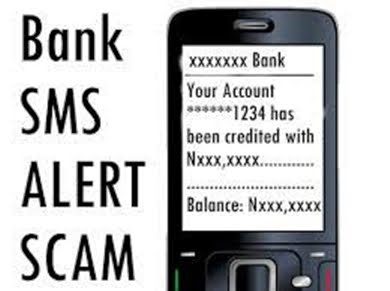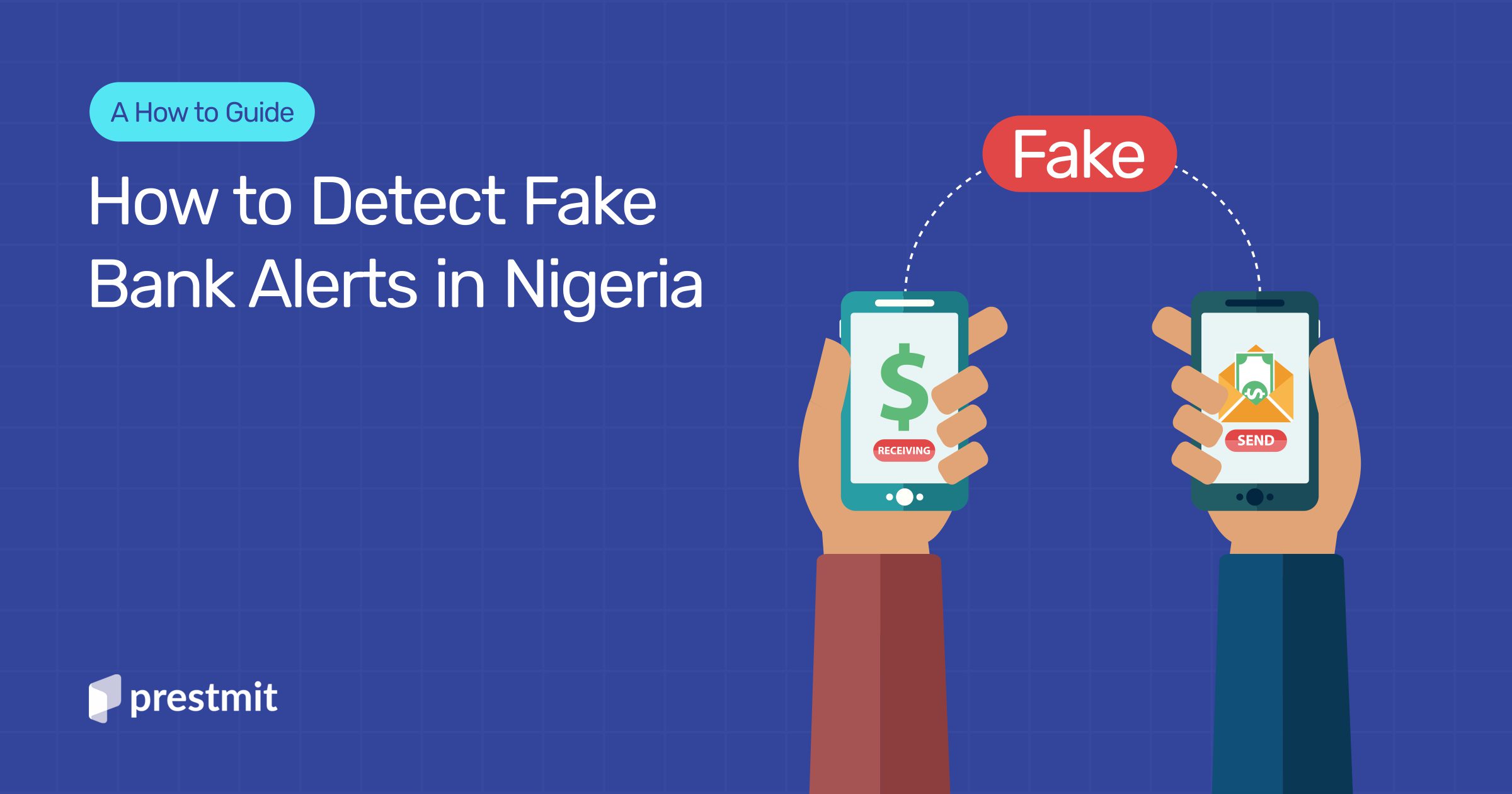There is nothing as devastating as losing your money to fraud in Nigeria. This malicious activity often comes in different schemes to defraud people of their hard-earned money. One such way is using “made believe” fake bank alerts to scam people, especially those doing business. Therefore, you must know how to detect fake bank alerts in Nigeria.
It is common knowledge that technology has revolutionised the financial space, so its emergence is not outrightly beneficial. There are also underlying challenges regarding how people abuse technology to pose a significant risk to others.
The cashless policy established in 2012 by the Central Bank of Nigeria (CBN) was designed to control the circulation of the Nigerian naira notes, where individuals can withdraw a maximum of N500,000 and the maximum withdrawals of corporate bodies is N3 million daily. This reduces the rate at which people go about with cash.
This policy has, in turn, made Nigerians opt for internet banking to make transfers from anywhere in Nigeria. So as this innovation emerges, it is also becoming a hotbed of criminal entities creating devious means of defrauding people. This gives rise to fake bank alert that has become an existential threat to Nigerian financial outlook.
To this end, this article aims to guide you on how best to detect fake bank alerts to position you on the safer side of preventing money loss.
Understanding Fake Bank Alerts

Fake bank alerts have continued to elicit concerns in Nigeria as the number of victims of this fraud continues to increase due to innovations these malicious entities are adopting to defraud people. This practice entails sending money to a bank account, with the recipient unable to withdraw the funds from their bank account.
In other words, fake bank alerts can be referred to as flash funds, also called “audio money” in the local parlance, to make a money transfer seem original while it is faux.
This usually happens between businesses and customers, where customers can purchase to the seller’s bank account to make bank transfers. It can also take affect borrowers and companies with loan apps in Nigeria, where they may use fake bank alerts to lie about repaying their loans to the lenders. Hence leading to a back-and-forth between the two parties.
The seller will get a notification of the account being credited, which is a fake alert. Still, the seller will give the purchased products to the buyers – only to discover later that the money did not add up to the seller’s bank account balance.
This is a common malicious practice towards businesses, as many businesses have run losses worth millions of naira, which could even plunge some businesses into debt.
Moreover, you must know that your bank account number and phone number are the primary information fraudsters need to perpetrate this malicious act. It is almost impossible to get fake bank alerts without these two pieces of information because it may be difficult to track the fraudsters once you have revealed this.
Popular Apps For Fake Bank Alerts In Nigeria
For a better understanding of how this malicious practice works, let’s take a look at some popular apps that fraudsters use to scam Nigerians:
- Flash Fund app
- Money Prank Pro
- Lofty SMS app
- Pro and fake alert maker for Android
- Millionaire fake bank account
How To Identify Fake Bank Alerts
Receiving fake bank alerts is an awry experience that nobody wishes to have. It is important to note that anybody can fall prey to these fraudsters going about with fake alerts, but that does not mean there are no red flags to spot in being safe from being a victim.
So how can you identify these red flags of fake alerts?
Verify The Sender’s Information
A legitimate bank alert will have the bank’s name and logo, including the sender’s email address or phone number matching the official contact details of the bank. You can confirm this information via the bank’s website or call the bank directly.
Look For Inconsistencies
There would likely be elements of inconsistency in the content or formatting of the alert. For instance, a legitimate bank alert will have the account number of the sender and the transaction details, but these details may be unavailable in fake bank alerts.
Check The Language And Tone
Often, you can discover spelling errors, grammatical mistakes, or an informal tone in the fake bank alert. In contrast, original bank alerts are always written formally and professionally. Therefore, be wary of bank alerts that request important information like PINs or passwords. This is because banks do not ask for such information using signals.
Confirm With The Bank
You can clear your doubt by verifying the authenticity of the bank alert through the bank. Every bank has a customer support team that you can contact to help you ascertain the validity of the signal while providing information on recent transactions in your bank account.
How To Verify The Authenticity Of A Fake Bank Account
Confirm The Addition Of The Credit To Your Balance
You must see the addition of the credit alert to your bank account. For instance, if you have N50,000 in your bank account balance and get a bank credit alert of N25,000, your total account balance should now be N75,000. There is an issue if anything is short of that.
Check Your Email
You will be notified of your account being credited anytime someone sends money to you. This is similar to when you transfer money from your bank account to another account. Therefore, you must be able to get the same notification from your bank in your email.
How To Protect Yourself From Fake Bank Alerts
Know Whether Your Bank Send Credit/Debit Alerts By SMS
While some traditional banks send alerts via SMS, digital banks don’t. Hence the need to understand the mode of operation of your bank as regards sending credit or debit credits. This would enable you to be wary of this alert mode regarding your bank.
Confirm All Transactions
It is vital to confirm every transaction in your bank account. This is very important for businesses; you must ensure that your bank account has been credited before giving purchased products to customers.
In addition, be wary of people that hurry you to check your account balance. You check your account balance via your bank mobile app, at the ATM, or in your bank statement.
Be Security Conscious
You must avoid giving your mobile device to anyone who claims to know how to help you get push notifications. This is because they can check your account balance and account information. So keep this private and report any issue to your bank.
Reporting Fake Bank Alerts
It is very important to report the incidence of fake bank alerts to your bank for immediate action, like trying to track the fraudster. If these cases become prevalent, they may prompt your bank to issue a press release to the public, especially the customers, on the spate of fake bank alerts ravaging their bank account.
This step would further sensitise people to the different schemes of malicious entities to defraud people. Therefore, you can save many bank customers from falling victim if you report your case of fake bank alerts.
In addition, the case may be escalated to the police and the Economic and Financial Crimes Commission (EFCC) to take some steps that could enable them to clamp down on the perpetrators or the malicious act.
Conclusion
Fake bank alerts are becoming pervasive in Nigeria today, and there is a need to be aware of the red flags that signal that you are on the brink of being a victim. You must know your account balance before getting a credit alert to give you a proper overview of your account balance when an amount is added. This is a practice you must take seriously.
Moreover, you can always check your email about all the transactions in your account.
However, it is important to immediately report any case of fake alert to your bank for further steps that could help your bank account get secured.

